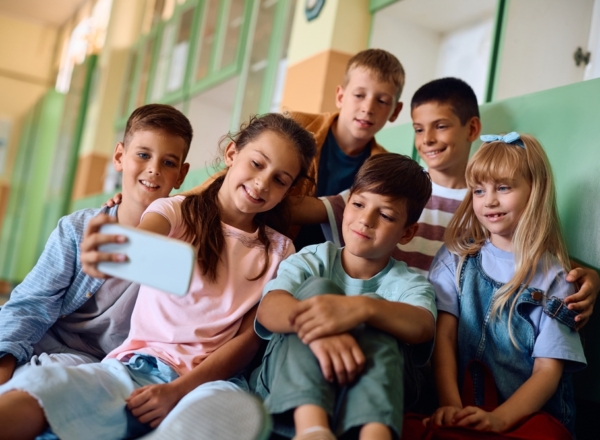As parents we want to offer the best to our children. We want to provide them with all the necessary skills that will help them shape a harmonious adult life, in which they will feel happy and successful. We invest particularly in the education of our children and mainly in the acquisition of knowledge. But is knowledge enough for a child to be able to achieve his dream life?
In a world full of challenges and uncertainty, obtaining social skills from childhood onwards seems very important to achieve the best possible upbringing of our children. From birth to adulthood, children interact with society trying to understand it and build a relationship with it. This relationship is facilitated by the development of social skills. But what is the exact meaning of social skills?
The term social skills (social skills or competencies) refers to the ability of a person to communicate properly and form healthy interpersonal relationships. The ability to follow rules with critical ability, understand rights and obligations but also be characterized by self-esteem and self-confidence. The result of all these skills shape a person’shis psycho-social competence.
It is obvious that social skills play a very important role in the development of children and in how they will experience their adulthood. It has been pointed out in research that children and teens who grow up in an environment that favors the development of social skills, have greater mental authenticity, cope successfully with difficulties and adapt more easily to any environment. On the contrary, children who haven’t developed these skills find it difficult to completely understand the world and their place in it, to cooperate and communicate, to organize and set goals, to dream and to succeed. Finally, they often find it difficult even to manage their emotions.
The development of the child’s social skills is achieved through his interaction with the members of the family and then with his social life. At school, the child “experiments” by interacting mainly with peers, building his personal style of communication. Gradually, the child builds a self-image, while at the same time, forms his interpersonal relationships.
But how can we help our children develop these skills? The first step is to be ready to accept that our children, especially when they enter school, and later in other groups, will have other influences besides our own. This is something that can lead to comparison and criticism on their side. We therefore need to endure it. We also have to ask ourselves if we have the skills that we want our children to have. Are we flexible and adaptive enough? Do we think about our actions? How do we manage a crisis? How do we solve our problems? Do we ask for help in the difficulties? Do we share our joys and dreams?
Finally, it is important to act with respect in this developmental phase of children. With empathy, acceptance and openness. Let’s not forget that it is a phase of experimentation where children are looking to find their own way to ‘’connect’’ and find their own ‘’space’’ to grow!






